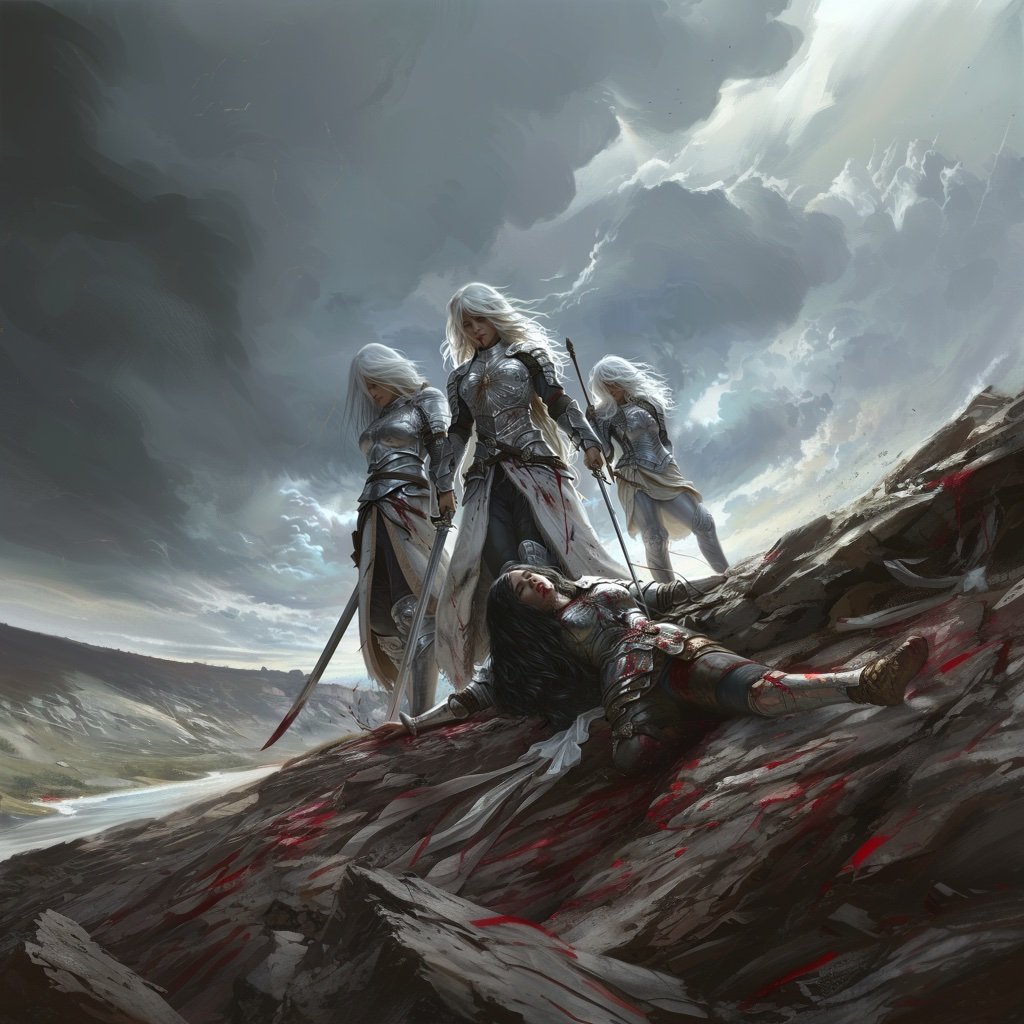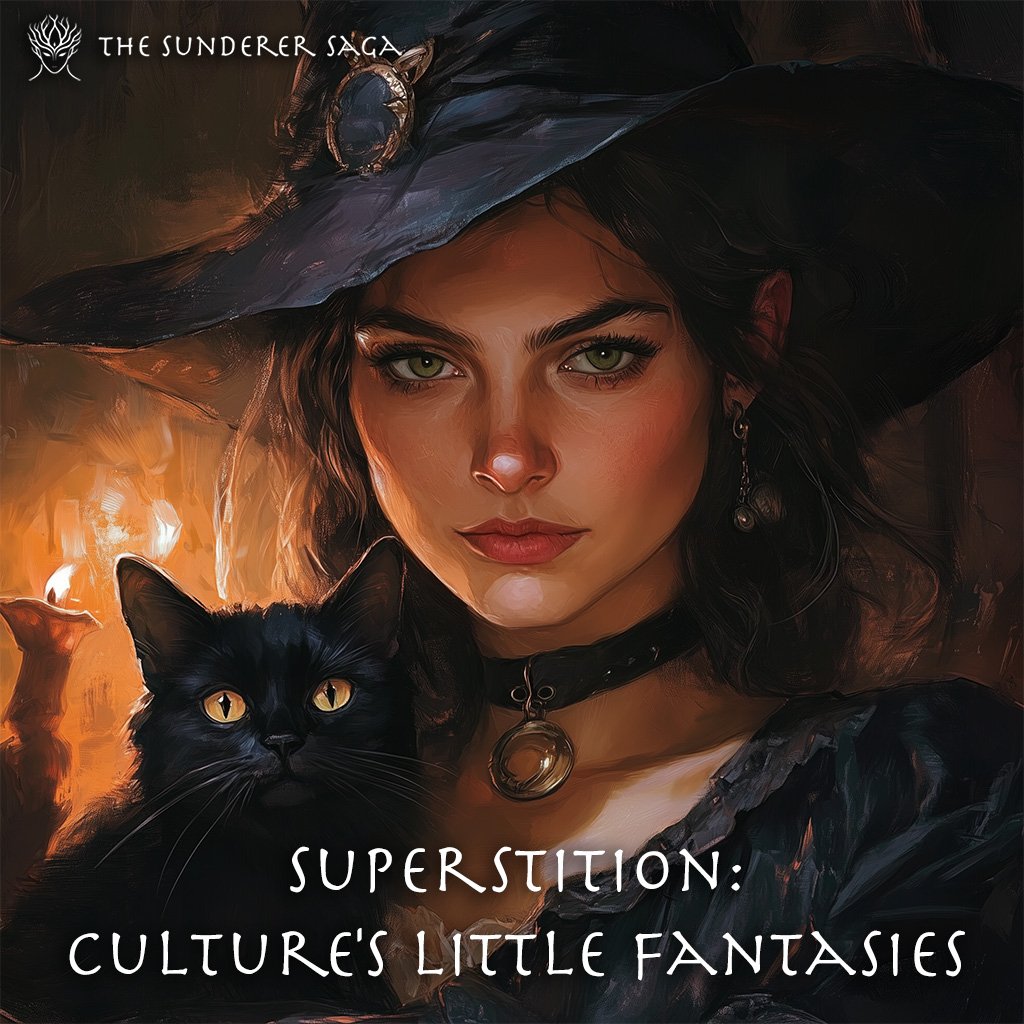As Friday the 13th approached on my calendar, I found myself wondering about the origins of this infamous day. Why do we consider it unlucky? Where did this superstition come from? Little did I know that this curiosity would lead me down a fascinating path, not just through history, but into the realm of fantasy writing.
Unraveling the Mystery of Friday the 13th
The fear of Friday the 13th, known as paraskevidekatriaphobia, is a relatively modern phenomenon, but it’s rooted in ancient fears of both the number 13 and Friday itself.
In Norse mythology, Loki, the trickster god, was the 13th guest at a dinner party in Valhalla. His uninvited presence led to the death of Baldr, the god of joy and gladness. Christian tradition also plays a role in the superstition. Judas, the apostle who betrayed Jesus, was said to be the 13th guest at the Last Supper.
Friday, too, carried negative connotations in Christian lore, being the supposed day of Eve’s temptation of Adam, the start of the Great Flood, and the day of Jesus’s crucifixion.
The specific fear of Friday the 13th seems to have coalesced in the 19th century. One of the earliest references comes from Henry Sutherland Edwards’ 1869 biography of Gioachino Rossini, who died on Friday, November 13th, 1868. The superstition gained further traction with the publication of Thomas W. Lawson’s novel “Friday, the Thirteenth” in 1907.
Some historians point to the events of Friday, October 13, 1307, when King Philip IV of France arrested hundreds of the Knights Templar. This historical event, with its mix of power, secrecy, and perceived betrayal, seems ripe for storytelling.
From History to Fantasy
As I delved into the origins of Friday the 13th, I couldn’t help but think about how superstitions play a role in fantasy literature. The rich tapestry of beliefs, both historical and cultural, surrounding this day sparked my imagination. How might such a superstition develop in a fantasy world? What events might lead to a particular day being considered unlucky?
I began to see how real-world superstitions could serve as inspiration for creating believable and intriguing cultural elements in fantasy settings. Just as Friday the 13th has its roots in various historical and religious events, a fantasy world’s superstitions could be tied to its own history, religions, and cultural beliefs.
Superstitions in Fantasy Worlds
This line of thinking led me to examine how other fantasy authors have incorporated superstitions into their worlds. J.K. Rowling‘s Harry Potter series, for instance, is rife with magical superstitions. The dreaded Grim, a spectral black dog that portends death, is feared by wizards much like some real-world cultures fear black cats or crows as harbingers of misfortune.
In Terry Pratchett‘s Discworld, the number eight is considered lucky due to the Octavo, a powerful magical book. This mirrors how certain numbers are considered lucky or unlucky in various real-world cultures, like the lucky 7 in Western culture or the lucky 8 in Chinese culture.
George R.R. Martin‘s “A Song of Ice and Fire” features the ominous saying “Dark wings, dark words,” referring to the belief that ravens often bring bad news. This reminds me of the real-world superstition about birds tapping on windows being an omen of death.
A World of Inspirational Beliefs
My exploration of Friday the 13th opened my eyes to the vast array of superstitions that exist across different cultures. In China, the number 4 is considered unlucky because it sounds similar to the word for “death.” In Turkey, it’s believed that when chewing gum at night it turns into dead flesh. Japanese culture holds that sleeping with your pillow facing north is bad luck and can lead to ill fortune.
Each of these beliefs, no matter how strange they might seem to outsiders, has its own internal logic and cultural significance. As a fantasy writer, I realized that incorporating such detailed and unique superstitions could add depth and authenticity to fictional cultures.
Crafting Fantasy Superstitions
This journey from Friday the 13th to the world of fantasy superstitions has been incredibly inspiring. It’s reminded me that as fantasy authors, we have the privilege of creating our own myths and superstitions. But it’s also shown me that sometimes, the most captivating inspiration comes from exploring the rich tapestry of beliefs that already exist in our world.
The possibilities are as endless as human imagination. And isn’t that, after all, what fantasy is all about?

